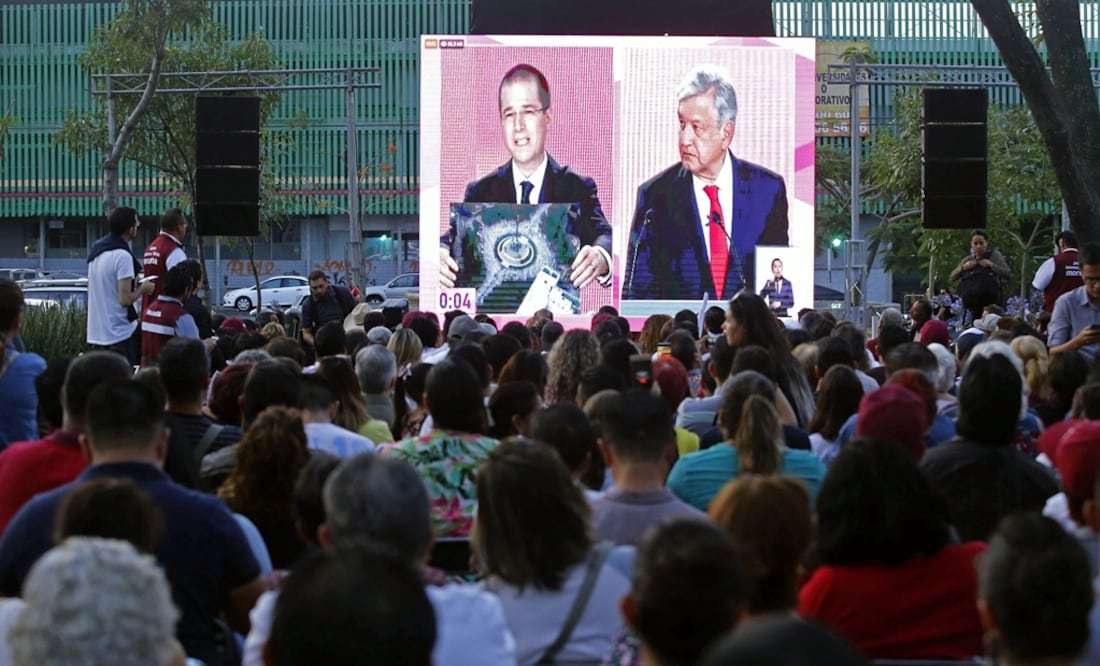Más Información

Osiel Cárdenas, exlíder del Cártel del Golfo, recibe auto de formal prisión; enfrentará juicio por homicidio

Jóvenes mexicanos pasan más de 2 mil horas al año en el teléfono; OCDE alerta sobre su impacto en la salud mental

Sergio Gutiérrez Luna destaca aprobación de 25 reformas en la 66 Legislatura; "Un logro histórico para la 4T", señala

Secretario de Agricultura reafirma defensa del maíz blanco; "Seguiremos apoyando la producción nacional no transgénica", afirma

¿Maíz transgénero? Rubén Rocha corrige desliz durante discurso en Sinaloa; destaca importancia del maíz blanco

Sheinbaum asegura apoyo total a Sinaloa para enfrentar violencia; "Nunca los vamos a dejar solos, aquí está la presidenta"
The presidential debate of this past Sunday was the first on our road to election day; this event reflects the growth Mexican democracy has had in the past decades. Candidates running for President contrasted ideas, projects, proposals, and personal attacks in an exercise which breaks from the electoral tradition in our country.
The first presidential debate in our history, which took place in 1994, seems so far away now yet from that election and on, debates have become a permanent fixture of election times. The outstanding aspect of Sunday's debate was the flexibility with which contenders were able to share their positions more openly. If we review the debates from the first one ever to the latest one, we see there is a marked evolution in the format of the debate but also in the essence of what they contribute to voters.
Prior to the first presidential debate of the 2018 General Election, the National Electoral Institute (INE) stated they would devise a format that would allow voters to get closer to the candidates. Seeing what happened last Sunday, we can say the goal was met. During the event, we could confirm the rules of the debate allowed for open and direct exchanges between moderators and candidates.
Wherever you look at it, the first presidential debate of this year has set the standard in the trajectory of the democratic consolidation in Mexico. Promoting a culture of dialogue is key to having an effective public deliberation. Therefore, the upcoming exercises need to be in the same vein of what was achieved thus far. We have to include the concerns of the citizens in a more fluid and clearer way.
Debates among candidates during election times are opportunities for the citizens to know them in a very different setting, beyond advertisements and rallies. It's through these civilized and organized dynamics that candidates are put to the test to show their skills before voters. Considering these criteria, there's still much to innovate regarding formats and strategies.
About the content, it's necessary to reinforce that candidates need to make their contributions more substantial for voters. It's true that while this debate saw the back and forth of ideas and proposals, the priority was focused on personal attacks as part of electoral strategies. In our current context, citizens demand special attention and detail in the projects candidates want for the country. All in all, the first presidential debate is evidence democratic consolidation in Mexico is underway. Congratulations.
am




